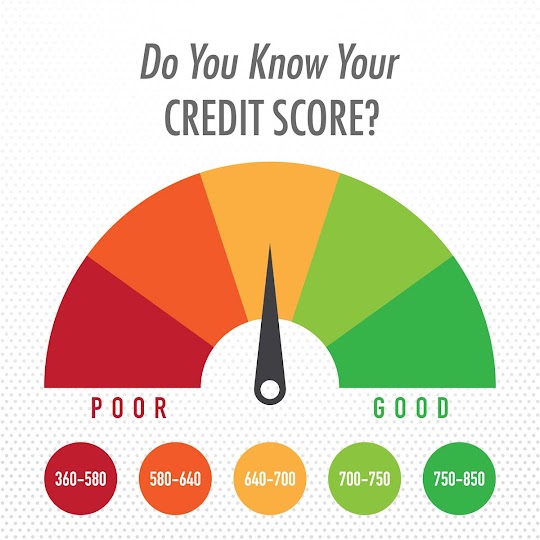October 27, 2020
Credit Scores 101: What is Your Credit Score?
When you are applying for a mortgage, one of the primary factors that will determine the offers you receive is your credit score. The higher your credit score, the easier it will be for you to qualify for competitive rates and terms.
You probably have a lot of questions about credit scores. In our Credit Scores 101 series, we will answer these questions. We’ll get started with the basics by discussing what credit scores are.
What are Credit Scores?
As a consumer, you have a credit score. You have multiple credit scores, which we will explain shortly.
The purpose of your credit score is to numerically express how risky or trustworthy you are as a borrower.
If lenders approved all customers for loans regardless of their likelihood of paying them back, it would not be good for their bottom lines
By checking your credit score, a lender can take an informed decision about whether to take you on as a customer
Actions you take that are reliable help to boost your score. These include paying your debts on time and in full and keeping up with your bills.
Actions you take that are unreliable reduce your score. For example, if you fall behind on your bills or have outstanding debts that are past due, your score will suffer as a result.
Which Credit Scores Are Important?
As just mentioned, you have more than one credit score. This is true for everybody. In fact, between the credit bureaus and individual lenders, any one consumer may have dozens of scores.
Thankfully, there are only two types of credit scores that are especially important to familiarize yourself with. These are your FICO Score and your VantageScore.
FICO Score
The most important credit score is the FICO score. Indeed, around 9 out of every 10 lending decisions are made using a consumer’s FICO score.
FICO stands for the “Fair Isaac Corporation.” To generate its score, FICO uses credit report data from Experian, Equifax and TransUnion, which are the big three credit bureaus.
Following are the FICO score ranges:
- 800+: Exceptional
- 740-799: Very Good
- 670-739: Good
- 580-669: Fair
- Under 580: Poor
Around a quarter of consumers have scores that are “Very Good.” About 21% fall into the “Exceptional” category, while around 21% fall into the “Good” category. The remaining borrowers have credit scores that are Fair or Poor.
It is also possible to have no credit. This may be the case if you are young and therefore have yet to establish a credit history.
It is important you understand how your FICO score is calculated:
- Payment history (35%)
- Total debt (30%)
- Credit history length (15%)
- Type of credit allocation (10%)
- New credit & inquiries (10%)
Other types of credit scores are calculated differently (see below).
VantageScore
The VantageScore is not as important as the FICO score, but it is in wide enough use that it is noteworthy. Usage of this type of score also is on the rise.
Experian, Equifax, and TransUnion created this type of score.
Here are the different brackets your VantageScore may fall into:
- 781-850: Excellent
- 661-780: Good
- 601-660: Fair
- 500-600: Poor
- 300-499: Very Poor
Around 38% of consumers have a “Good” VantageScore. About 23% have an “Excellent” score. Around 13% have a “Fair” score, 21% have a “Poor Score,” and 5% have a “Very Poor” score.
You know what goes into calculating your FICO score, but what about your VantageScore?
There are multiple versions of the VantageScore with different version numbers.
The current version is 4.0. There are no percentages given for different factors. Instead, they are expressed as follows:
- Extremely Influential: Total credit usage, balance, available credit
- Highly Influential: Credit mix, experience
- Moderately Influential: Payment history
- Less Influential: Age Of credit history
- Less Influential: New accounts
What is a Credit Report?
I briefly mentioned credit reports earlier. Credit reports are not the same thing as credit scores, but consumers sometimes think that they are identical.
A credit report is a file on your borrowing activities maintained by any of the three major credit bureaus. You have a separate credit report for each bureau.
This is the data which is used to calculate credit scores. Giving different weights to different types of data on your reports or using different report as inputs results in different credit scores as outputs.
Each year, you are entitled to receive one free credit report from each of the three bureaus. You can check your data on each report to understand more about your credit scores and how they were computed.
In future posts, we will explain credit reports in greater detail as well as what you can do to contest negative entries on your reports if they are incorrect.
We will also provide you with additional recommendations for maintaining or lowering your score.
Ask Us Your Credit Score Questions or Apply Now
If you have more questions about your credit score, Community Mortgage has answers.
Please give us a call at (619) 692-3630 to set up a consultation. During your call, we can answer your questions and give you personalized tips for raising your score. We can also walk you through the mortgage application process. Whatever your score, we will work hard to match you with a competitive home loan.




